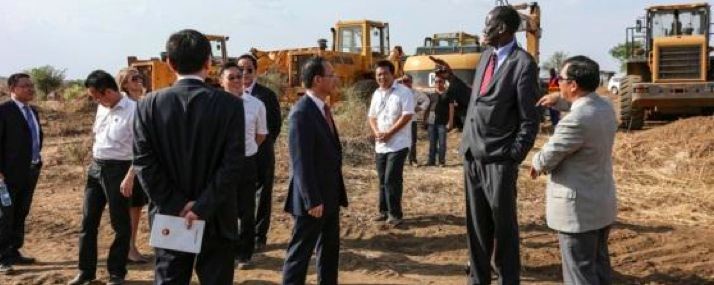The government of China will help build a camp defended by United Nations peacekeepers in order to accommodate displaced persons (IDPs) who will be transferred from two other overcrowded bases in Juba once the new camp is completed.
The UN Mission in South Sudan (UNMISS) has signed a three-way agreement with the Chinese embassy and the South Sudanese Ministry of Foreign Affairs to collaborate on the construction project for the new camp, which is located next to the ‘UN House’ base in Juba.
UN officials term the new site a ‘Protection of Civilians area’. It will house up to 10,000 people, most of whom fled to UN bases in Juba during the events of 15-18 December.
Ambassador Ma Qiang represented the Chinese government at a groundbreaking ceremony on Tuesday. “It is good that we are making further efforts to help the South Sudanese people overcome difficulties. On the other hand, these kinds of difficulties should not have happened,” he said.
The site covers 600 square meters of land made available by the government, according to a statement by UNMISS. Work at the site already commenced since 12 February with leveling and drainage undertaken by Chinese workers and the United Nations Office for Project Services (UNOPS).
In the agreement, referred to as a ‘letter of endorsement,’ the China National Petroleum Company (CNPC) will support the effort with machinery and funding up to US $1.6 million.
The Zhonghao Overseas Construction Engineering Company will oversee construction alongside 11 UNMISS Chinese peacekeeping engineers, he said.
Photo: Visit to the new PoC site in Juba after signing of the MOU (UNMISS/Isaac Billy)
Related coverage:
Displaced at UN base in Juba: ‘We’re not leaving’ (29 Feb.)
Key humanitarian updates: Overcrowding main problem at Juba camps (4 Feb.)




